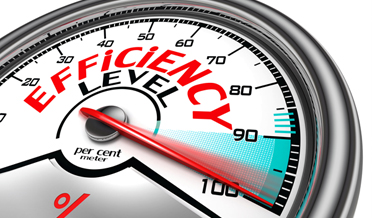HVAC Efficiency: What should I do if my AC runs constantly?
HVAC Efficiency: 6 Tips if Your AC Runs Constantly
It is that time of year when HVAC Efficiency is a concern. Crank the ole AC up and get some relief, because it is a scorcher today! Wait. Should the air conditioner be running all the time? Is this going to run my electric bill way up? Is something wrong?
If the cooling season is underway and you are concerned about HVAC Efficiency and your cooling system is running too much, here are some tips that you can use to answer the question.
- Is your HVAC system sized correctly and installed correctly? The correct sized cooling system installed properly will run significantly during summer days to provide the desired cool temperatures throughout the house. Some simple things to know:
- A system too small for your house runs constantly but cannot keep the house at the desire cool temp. It is like the “Little Engine that Could,” except it can’t. An undersized system will work overtime trying to keep up, which increases the wear on components and shortens the lifespan of the system.
- A system too large for your house cycles off too quickly; it turns on and off too much. With short cycles, it cannot remove humidity properly and can create moisture and mold problems. It also results in higher electric bills and shortens the life of switches.
- Improperly sized ducts may also cause the unit to run too much. Ducts that are too small for the blower motor put unnecessary force on the blower, while ducts too large reduce air circulation.
- An estimated 75% of long-term air conditioning problems are related to improperly sized or installed systems.
- Check your air filter for immediate relief. Most filters are paper allows air to freely flow through the system. But if you add a layer of dust bunnies to the filter, it reduces airflow and this can make your AC unit work longer and harder. Change filters every 60 to 90 days for best results and optimal HVAC Efficiency.
- Check your AC compressor coils. Those coils are usually on the outside of the house. Air needs to move from the outside in and usually is blown out the top of the compressor. Remove leaves, grass, debris, and dirt so that air flows freely.Use a hose if needed; remember, it gets rained on, so a shower to clean it will not hurt. If there is damage to the compressor unit, call a professional service provider.
- Is your thermostat working properly? Here is how you can know:
- Use a thermometer next to the thermostat, to make sure it is reading properly
- If it is reading the temperature properly, make sure it is shutting on and off properly. Turn the setting up past the temperature it registers and wait five minutes. It should shut off the air conditioner in that time span.
- If it is reading the correct temperature and will not shut off, check the settings. Make sure it is set on Cool, not Heat. Also, is the fan set on Auto or On? If the fan is set on On, the fan will run all the time, making one think the air conditioner is also running constantly.
Now, for some more difficult levels of HVAC Efficiency observation.
- Is your house leaking air? In order to cool your house to the desired temperature, it needs to be sealed pretty tight.Check these common sources of leaky cool air: windows, doors, unsealed or uninsulated ducts. Check attic openings and attic fans.
- How long has it been since your HVAC system was serviced by a professional? Good preventative HVAC Efficiency maintenance should be completed at least once annually. Spring and Fall are good times for service calls, so plan accordingly.Preventative maintenance service should include a check and lube of components, a cleaning of the entire system, and an efficiency check of airflow through the system.
- How old is your HVAC system? The average lifespan of a heating and air conditioning system is approximately 20 years.If your system is approaching the end of its lifecycle, it is best to plan for a replacement then be surprised by failure and it will increase your HVAC Efficiency.
Questions about HVAC Efficiency?
Our technicians can provide a thorough inspection of your heating and air conditioning system to identify any potential HVAC Efficiency problems.
Replacing worn or improperly configured HVAC System components can significantly improve the efficiency of your furnace.
Our technicians are thoroughly trained and certified to repair or design any improperly installed ductwork systems.
For more information about R.M. Mullinix or heating systems, schedule an appointment, or visit our HVAC maintenance information page.

